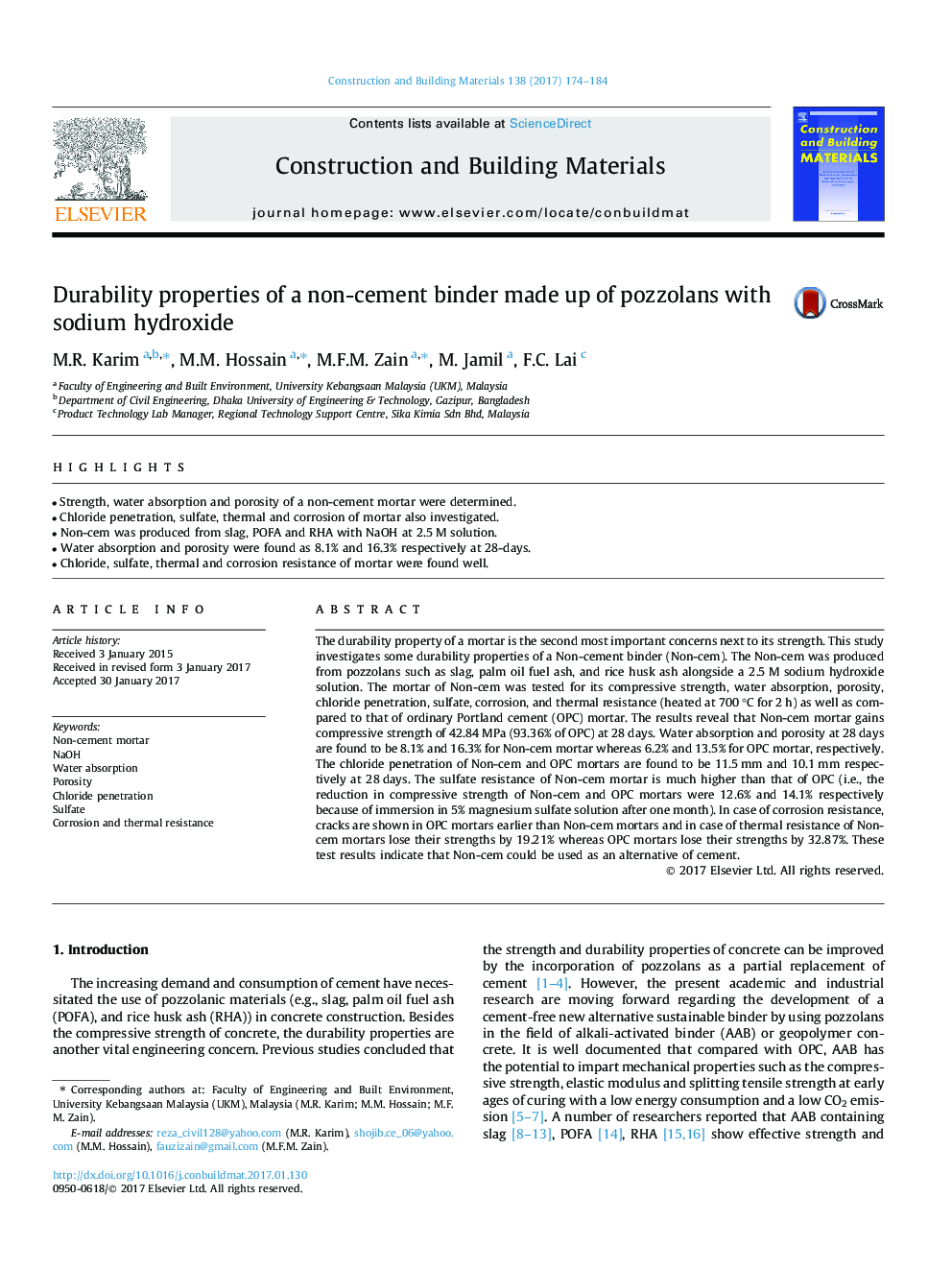| Article ID | Journal | Published Year | Pages | File Type |
|---|---|---|---|---|
| 4913706 | Construction and Building Materials | 2017 | 11 Pages |
Abstract
The durability property of a mortar is the second most important concerns next to its strength. This study investigates some durability properties of a Non-cement binder (Non-cem). The Non-cem was produced from pozzolans such as slag, palm oil fuel ash, and rice husk ash alongside a 2.5 M sodium hydroxide solution. The mortar of Non-cem was tested for its compressive strength, water absorption, porosity, chloride penetration, sulfate, corrosion, and thermal resistance (heated at 700 °C for 2 h) as well as compared to that of ordinary Portland cement (OPC) mortar. The results reveal that Non-cem mortar gains compressive strength of 42.84 MPa (93.36% of OPC) at 28 days. Water absorption and porosity at 28 days are found to be 8.1% and 16.3% for Non-cem mortar whereas 6.2% and 13.5% for OPC mortar, respectively. The chloride penetration of Non-cem and OPC mortars are found to be 11.5 mm and 10.1 mm respectively at 28 days. The sulfate resistance of Non-cem mortar is much higher than that of OPC (i.e., the reduction in compressive strength of Non-cem and OPC mortars were 12.6% and 14.1% respectively because of immersion in 5% magnesium sulfate solution after one month). In case of corrosion resistance, cracks are shown in OPC mortars earlier than Non-cem mortars and in case of thermal resistance of Non-cem mortars lose their strengths by 19.21% whereas OPC mortars lose their strengths by 32.87%. These test results indicate that Non-cem could be used as an alternative of cement.
Related Topics
Physical Sciences and Engineering
Engineering
Civil and Structural Engineering
Authors
M.R. Karim, M.M. Hossain, M.F.M. Zain, M. Jamil, F.C. Lai,
